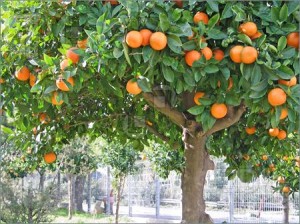1 Whoever believes that Jesus is the Christ is born of God; and whoever loves the Father loves the child born of Him.
2 By this we know that we love the children of God, when we love God and observe His commandments.
3 For this is the love of God, that we keep His commandments; and His commandments are not burdensome.
4 For whatever is born of God overcomes the world; and this is the victory that has overcome the world–our faith.
5 And who is the one who overcomes the world, but he who believes that Jesus is the Son of God?
(1 John 5:1-5, NASB).
Remembering the Context
We must remember when reading this verse that its roots are in the preceding context. The roots of love are in the love which God has for us, and coming to know and believe the love which God has for us. The roots of God’s love for us, or perhaps the ultimate showing forth of that love, is Christ’s propitiation – Jesus’ death on the cross for us. It says at once that we are very greatly loved and worth dying for, and that our sins are real and warrant the penalty of death.
We come to love the Father because He first loved us (1 John 4:9,10,19) and because we have come to know and have believed it to be so (1 John 4:16). You cannot come along now and say, “you see here, you need to love God’s children or you can’t pretend to love God” as some kind of imperative. This verse is not an imperative, and that is a very important observation. It is a description of what happens in the life of the people who have come to know and have believed the love God has for us.
It is coming to know and believe the initial love that the Father has for us, while we are yet sinners and have no love at all, that produces this love.
Two Ways to Get Oranges from a Tree
If you want a tree to bear oranges, you could take a drawing of an orange out to a random tree and say, “Here is what I want you to do. This is what I want you to bear. Get on with it.” This isn’t really going to work. First, the tree has to be born of the seed that bears that kind of fruit – oranges. It has to be an orange tree. You can show it pictures of oranges all day long and you won’t get any oranges, ever. You could threaten it and yell at it and stomp around demanding oranges. Suppose someone comes and says, “You aren’t going to get any oranges that way. Trees don’t listen and fruit doesn’t come to them in that manner.” You might be tempted to think, this person doesn’t share my fondness and passion for oranges! How dare they! But this is ridiculous isn’t it? Of course your counselor has nothing at all against oranges. He isn’t suggesting oranges are bad; he is suggesting that your methods of obtaining oranges is bad. Growing really big juicy succulent oranges involves climate, water, soil nutrients, protection from pestilence, plenty of bees, and all kinds of things. None of these things directly look like an orange. You have to provide these things and then it still takes time to get an orange. You can’t just draw a picture of oranges and start demanding them.
The kind of Tree that bears the fruit of Love
When we press these verses in 1 John 5 out of context with the flow of the rest of 1 John, and turn observations of resultant fruitful living into old commandments (1 jhn 2:7,8), it is just as useful as yelling at an alder tree to bear oranges. You are telling a person who is not born of God to have all this love. You may as well tell a piece of wood to serve you dinner or a pig to grow wings and fly. It is nothing against loving your neighbor; there’s nothing wrong with your end game. It’s that the way you’re trying to get people there is as ridiculous and useless as yelling at a tree.
According to this verse, 1 John 5:1, the key to loving God and neighbor is being born of God, and the key to being born of God is to believe in Jesus. Once again, belief is the key. Belief is the “work” (John 6:29). If you want to bear the fruit of love, you have to be born of God; you have to know and believe the love that God has for you in Christ. Grace is the tree that bears the fruit of love between us. If you have come to believe that you yourself are so beloved that you are worth dying for, and that Christ’s love for you is so perfectly and powerfully persistent that even though you may murder Him He raises from the dead to love you still, it is a life transforming thing. If you believe that your sins warrant that punishment, that also is a life transforming thing. What he is saying here again is this: we are truly that beloved, we are truly that forgiven. The whole lot of us. We are the community of those people who believe in unstoppable grace for ourselves and for each other. This is the kind of tree that bears the fruit of love.

